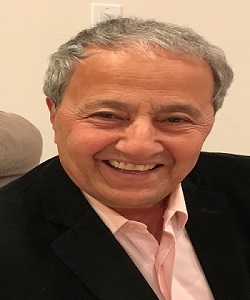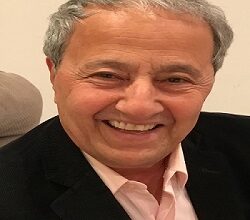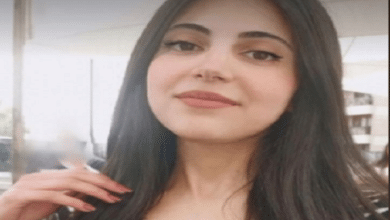
واشنطن –قصة هادفة حدثت لي مع ابنتي، حكيتها منذ فترة قصيرة لصديق جميل ،كان يعاني من الإكتئاب ،قاصداً احتضانه من ذاك الشعور و منحه دفء المؤازرة .
تتصل بي ابنتي، حين كانت في الثانوية ، من حمّام مدرستها، باكية مرعوبة تسأل عن أمها! لم تكن زوجتي في البيت. سألتها بقلق عمّا يجري! أجابت : تنتابني نوبة هلع ” I am having a panic Attack”. سألتها : هل أنت في حمّام مدرستك؟ يعني في مأمن و أمان.! أجابت بنعم. سألتها :هل هناك مرآة قربك؟ أجابت بنعم أيضاً . قلت لها قفي أمامها. تحدثي إلى نفسك. قولي لها إنك قوية. صلبة. لا تكسرك الأوهام .اعترضتْ. لا بل سخرت مما قلته. أصرّيت ، رجوتها أن تفعل . وقفتْ… تطلعتْ… و سمعتُ بعدها ضحكتها الجميلة الآمنة.
أعيد رواية تلك القصة ،متسائلاً عن سبب نجاح ماقلته لابنتي في مساعدتها عبور ذاك الإحساس الذي بدا مرعباً ! و أعاد لقلبها السكينة و الطمأنينة! متسائلاً أيضاً إن كان بالإمكان الإعتماد على هذه الثقافة القادمة من مدرسة تراثية، دينية واجتماعية ، قوامها ” الإيمان بالمكتوب”و تحمل البلاء بكل ضروبه ، بقصد ثقل النفس و تحصينها واستخلاص الدروس مهما كانت الأثمان؟
هل يمكن الاعتماد على مثل هكذا ثقافة وهكذا دروس لمعالجة الأمراض النفسية ، خاصة المصنف منها بالحرج ذي العواقب الخطيرة! هل يجب على أيّ كان، طواعية أو قسراً،أن يعيش منازلة الحياة على مسرحها كي يتعلم الدروس و يطبقها علاجاً لأمراضه، وأعني النفسية منها؟ و كيف لنا أن نتأكد من قدرته على المنازلة!!
خوف ابنتي ، الذي وصفتْه ب ” نوبة هلع”، حسب المصطلحات المعتمدة حالياً لبعض حالات الخوف ،كان عابراً. ولأنه كان عابراً، “جيّرت” تجارب حياتي لابنتي ،ففعلت فعلتها . هوذا الذي ختمت به رسالتي الى الصديق الجميل:”هناك نوبات رعب، و هناك حزن شديد لكننا نحن أيضاً هناك كي نعيشها و نجعلها عابرة..”
لكن كيف لنا أن نجعلها عابرة إن هي كانت ساكنة متشبثة؟ هل بمقدورنا أن نجيّر تجاربنا علاجاً لها ؟ هل بمقدور ثقافتنا الدينية و الاجتماعية والتراثية أن تكون علاجاً، نفسانياً، جراحياً أو عقاقير طبية لها ؟
الحكم : لا . لا يمكن لها أن تعالج . والتحكيم : نعم. يمكن لها أن تكون بلسم العلاج.
بوابة الشرق الأوسط الجديدة
Panic Attacks & Depression| Judgment and Arbitration
By Reda Asaad, Washington
I recently shared a meaningful story that happened with my daughter with a dear friend who was struggling with depression. I intended to embrace him and shield him from that feeling and offer him warmth of empathy.
One day, my daughter, who was in high school at the time, called me from her school bathroom, crying and terrified, asking for her mother. My wife wasn’t home. Concerned, I asked her what was going on. She replied, “I’m having a panic attack.”
I asked, “Are you in your school’s bathroom? Meaning, are you safe and secure?” Yes, she replied
I then asked, “Is there a mirror nearby?” She answered yes again.
I said, “Stand in front of it. Talk to yourself. Tell yourself that you are strong, resilient, and unbroken by illusions.”
She protested, even mocked what I said. But I insisted, pleading with her to try. She stood there… she looked… and shortly after, I heard her beautiful, reassuring laugh.
I recount this story again, questioning why what I told my daughter succeeded in helping her overcome that seemingly terrifying feeling. How did it bring calm and tranquility back to her heart? I also wonder if it is possible to rely on this cultural framework, rooted in religious, social, and traditional values—founded on “belief in destiny” and enduring trials in all their forms, aiming to strengthen and fortify the soul, drawing lessons no matter the cost.
Can we depend on our cultural approaches and life lessons to address mental health challenges, especially those considered delicate or with serious consequences? Must one, voluntarily or involuntarily, live through life’s struggles to learn lessons and apply them as remedies for mental health issues? How can we be sure of one’s ability to endure such struggles?
My daughter’s fear, which she described as a “panic attack,” using the currently accepted terminology for certain states of fear, was fleeting. And because it was fleeting, I “leveraged” my life experiences to help my daughter, and it worked. This is what I concluded my message to my dear friend with:
“There are moments of terror, and there is deep sadness, but we, too, are here to experience them and make them pass.”
But how can we make them pass if they are entrenched and stubborn? Can we channel our experiences as a remedy for them? Can our religious, social, and traditional culture serve as a psychological treatment, whether surgical or pharmaceutical?
The Judgment: No, it cannot cure.
The Arbitration: Yes, it can be a balm for healing.
Great Middle East Gate




